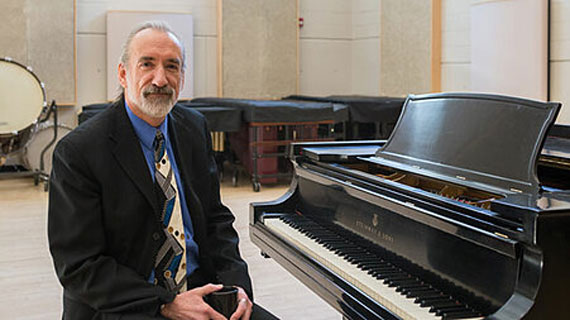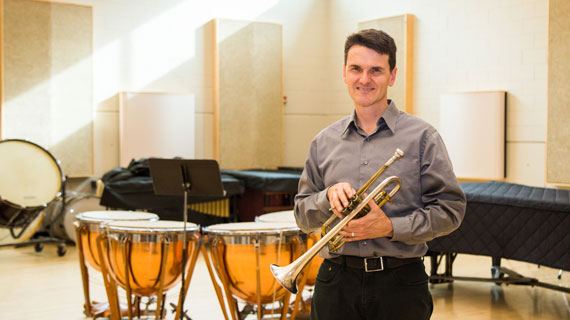Five Tips to Succeed as a Music Major in College
Posted: September 30, 2016 | Author: Southern Utah University | Read Time: 2 minutes
Southern Utah University’s bachelor degree program in music is accredited by the National Association of Schools of Music (NASM). The program allows students to have an emphasis in vocal performance, instrumental performance, or piano performance.
The music program’s courses are taught by faculty, not graduate assistants, which allow students to create a personal relationship with music faculty and helps them to succeed. Music majors also have the opportunity to get on-campus jobs within their department as music librarian, stage manager, theory tutor or office staff member.
Throughout their time on campus, music majors are given many opportunities to perform on and off campus. They participate in over 70 concerts and recitals throughout the academic year as well as clubs and organizations on campus such as Concert Choir, OPUS, Women’s Choir, Symphony Orchestra, Wind Symphony, Opera productions, Jazz Band, Athletic and Marching Bands, and numerous small ensemble and chamber music groups.
As music majors finish up their undergraduate experience, students are ready to pursue graduate studies in music or begin a career within the music and entertainment industry.
Five Tips to Succeed as a Music Major
1. Treat your daily practice time as homework
According to Jordan Nielson, a junior music performance major from Price, Utah, he recommends that all music majors practice at least two hours every day. “I believe that if you put your daily practice on the top of your priority list, everything else will fall into place and you will see better results across the board.”
2. Follow the advising sheet
When students start the music program they are given a list and schedule of the courses that they are required to take and in what semester they should take certain classes. Nielson said as long as music students stick to their outlined schedule, they should not encounter any problems.
3. Ask your professors for help
Music students who have questions or encounter problems should talk to faculty and staff in the music program. Nielson said, “All of my professors have been on my side and have helped me in any way that they can, including getting me to become much more independent and driven to become better.”
4. Don’t procrastinate the piano proficiency exam
Before music students can enroll in Music Theory III, they have to pass a piano proficiency exam. Take the piano proficiency exam early to avoid a delay in graduation.
5. Get involved outside of the classroom
From taking workshops from the Heartland Marimba Festival, to singing on Josh Groban’s tour, to performing with Orchestra of Southern Utah and even playing in the pit of professional theatre productions, there are many ways for music students to get involved outside of the classroom and further develop their skills.
This article was published more than 3 years ago and might contain outdated information or broken links. As a result, its accuracy cannot be guaranteed.




